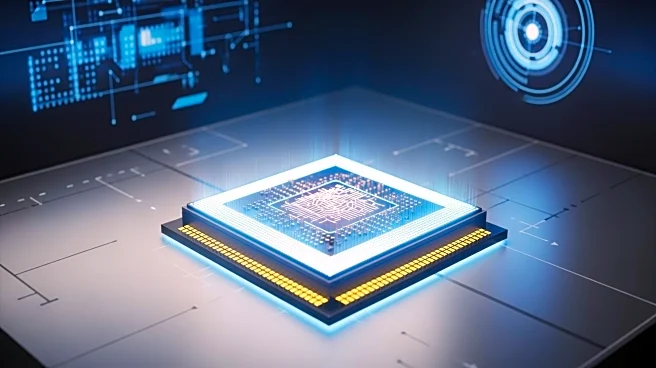What's Happening?
Advanced Micro Devices (AMD) has entered into a $1 billion partnership with the U.S. Department of Energy (DOE) to develop two advanced supercomputers, Lux and Discovery. These systems are designed to address significant scientific challenges, including
nuclear energy research, cancer treatment, and national security. The collaboration was announced by AMD CEO Dr. Lisa Su and Energy Secretary Chris Wright. Lux, the first supercomputer, is expected to launch within six months and will utilize AMD's MI355X AI chips, CPUs, and networking components. It will be installed at Oak Ridge National Laboratory in Tennessee. Discovery, the second system, is set to launch in 2029 at Lawrence Livermore National Laboratory in California, featuring AMD's MI430 chips for high-performance computing and AI workloads.
Why It's Important?
This partnership underscores AMD's expanding influence in high-performance computing and AI infrastructure, sectors poised for significant growth. By collaborating with the DOE, AMD positions itself as a crucial player in government-backed technological innovation, competing with industry giants like Nvidia and Intel. The project not only enhances AMD's reputation in the global tech landscape but also supports advancements in critical areas such as fusion energy and cancer research. As geopolitical tensions and export restrictions shape the competitive environment, AMD's involvement in this initiative highlights its strategic importance in the tech race.
What's Next?
The launch of Lux and Discovery will mark significant milestones in supercomputing capabilities, potentially accelerating progress in scientific research and national security. As these systems become operational, they are expected to drive advancements in AI and high-performance computing, influencing future technological developments. Stakeholders, including government agencies and research institutions, will likely monitor the impact of these supercomputers on scientific breakthroughs and policy decisions.
Beyond the Headlines
The ethical and cultural implications of this project are profound, as advancements in AI-driven supercomputing could transform healthcare and defense technologies. The ability to turn cancer into a manageable condition represents a potential paradigm shift in medical treatment, raising questions about accessibility and healthcare equity. Additionally, the project's focus on nuclear defense technologies may influence global security dynamics, prompting discussions on ethical considerations in AI and defense.
















